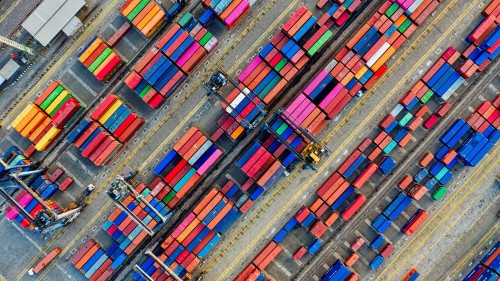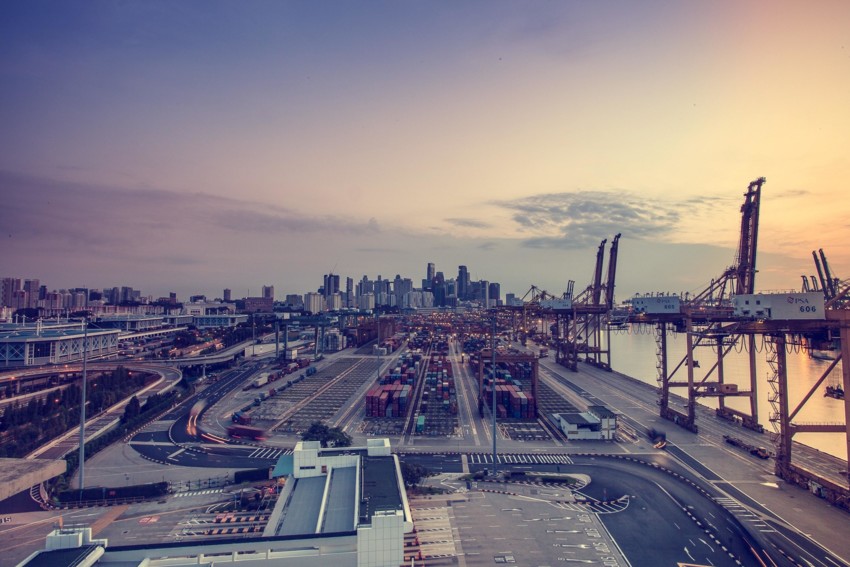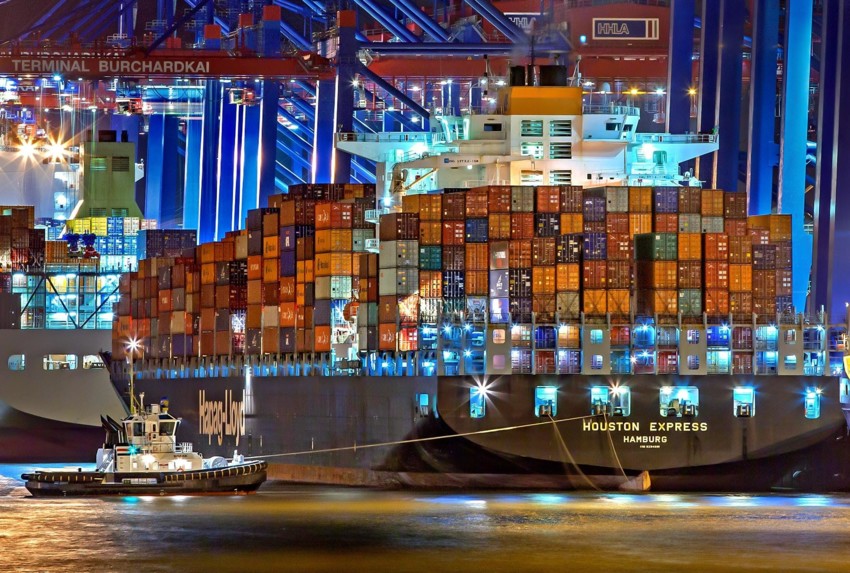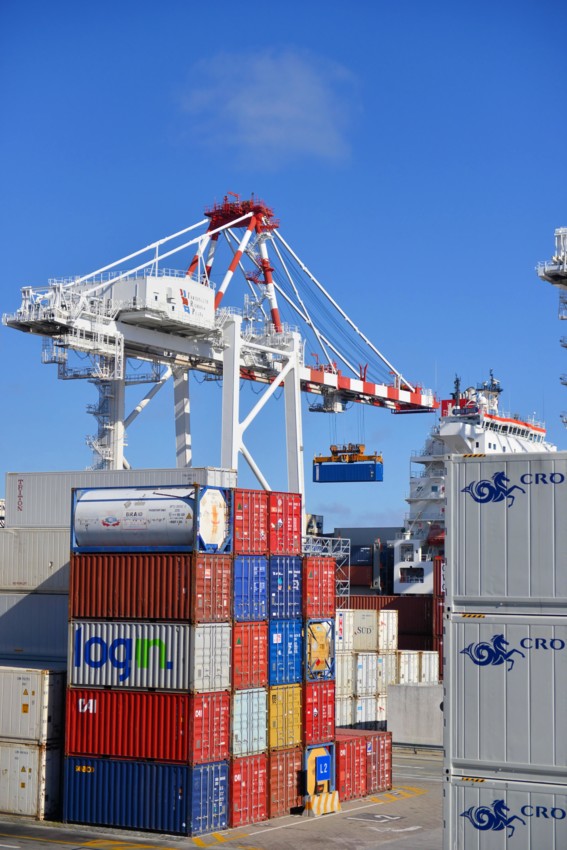Brexit: What is the deal with VAT and Northern Ireland?

posted 18th October 2019

It’s been a long time since I’ve written anything on Brexit. If I’m honest, it’s because there’s only so many ways I can say “I don’t know”. However, in the wake of the developments over the past couple of days, VAT has hit the spotlight in Brexit talks, and I thought it might be useful to explain the issue (even if we still don’t have an answer!)
Its early days, and I’m sure the content of this blog may change by the time you read it. However, it’s been a question I have been asking myself since the referendum 3 years ago: If we don’t stay within the EU Customs Union, and a hard border between the UK and Ireland is ruled out, how on earth will VAT on cross-border trade work?
Its perhaps worth pointing out that I've only covered VAT here, but there are of course other issues with cross-border goods and Brexit (Duties, compliance with regulations, etc).
Why is VAT an issue?
For cross-border goods transactions, there is a key difference between movements of goods intra-EU, and the movement of goods in and out of the EU.
Movement of goods between EU member states (intra-EU)
Where goods are situated in one EU member state, and sold and transported to a VAT registered businesses in another EU member, we call them dispatches (movements out of member states) and acquisitions (movements into member states). For example, if you are a UK VAT registered business, and buy machinery from Ireland, and it is sent to you in the UK, your Irish supplier has dispatched the machinery, and you have acquired it.
The Irish supplier charges 0% Irish VAT on the dispatch, and the goods move freely to you in the UK. There are no border checks - the goods of course comply with UK regulations because the Irish regulations are the same (common EU rules, and all that). No VAT is paid at the border, and the machinery happily arrives at your office.
Does this mean machinery is VAT free? Ha, no. But, the UK business self-accounts for VAT (acquisition VAT) on its UK VAT return at whatever rate prevails in the UK (20% for most machinery). HMRC has a way of checking compliance with this – the EU-wide Intrastat reporting system. (The Irish supplier must declare the goods sold to the UK business on its Intrastat report, and the Irish authorities share this report with HMRC).
Movement of goods in and out of the EU
Movements of goods in and out of the EU are imports and exports. If the UK now acquires the same machinery from a US supplier, it is exported from the US and imported into the UK.
The US does not have the same Intrastat reporting system (or, actually, VAT in general) so there is no way of HMRC checking what VAT needs to be paid by UK suppliers on these imports. As such, the goods are stopped at border, and import VAT is paid before the goods can clear Customs (alongside Import Duty and other regulatory requirements in many cases). This means there is currently a need for a hard border between EU and non-EU countries for VAT purposes, regardless of other issues.

What were the original options for Northern Ireland?
The two “black and white” options were:
1. The UK remains within the EU Customs Union; or
2. We have a hard border between Ireland and Northern Ireland.
Its probably an obvious point, but neither of these options have been deemed desirable politically. The Customs Union has many implications but would, for VAT purposes, mean that the UK would need to comply with all EU VAT and Customs regulations going forward (you may have heard that the “tampon tax” has come back in trend this week – the reason the UK can’t current apply the zero rate of VAT to sanitary products is because this is against EU law), without having a say on these rules. I probably don’t need to explain the objections to point 2.

What has the new deal proposed?
It is hard to say at this stage as the whole things seems to be both secretive and confusing, and by no means finalised. I hope that whatever deal is agreed will be confirmed sooner rather than later, so that businesses have sufficient time to plan.
In any case, my reading based on current information at the time of this article is that the current proposal, which will most likely change many more times over the course of this weekend alone, is that:
- There will be a transitional period up the end of 2020 in which everything will remain unchanged.
- From 1 January 2021, Northern Ireland would need to comply with EU VAT and Customs regulations for goods only. This presumably means that EU VAT rates will apply in Northern Ireland. Again, bad news for the tampon tax, although apparently Boris has also obtained a special agreement on this, due to its “significance in the overall Brexit argument”. Read into that what you will. EU VAT rates are different in every country (for example, the standard rate must be a minimum of 15% but can otherwise be what it likes) so I assume the suggestion here is that Northern Ireland would be subject to the same rates as Ireland.
- Any goods sent across the Irish Sea which are deemed “at risk of export to Ireland” would need to be checked for Customs purposes before entering Northern Ireland from the rest of the UK, and import VAT and Duties paid on arrival into Northern Ireland (to be passed to the Irish government).
- If goods were staying in Northern Ireland, this would need to be evidenced, and then the import VAT and Duties would be refunded.
- The same premise would apply for goods entering Northern Ireland from other non-EU countries with the same distinction between “risky” and “non-risky”.
Practical issues aside, last time I looked into this, I think this arrangement wasn’t quite legal (discriminating between different regions of the same country) as per EU law (which the UK as a whole both is and isn’t bound by under this new arrangement). Apparently this is being solved by giving Northern Ireland “special status”. Confused? Yep. On the plus side, the deal has probably changed again in the time its taken me to post this to my website.
Once we have proper confirmation on Brexit for VAT purposes I will provide some detailed comments on how this will affect businesses. However, for the time being, I hope this helps explained the issue and helps you decipher the VAT commentary in the media over the weekend!


